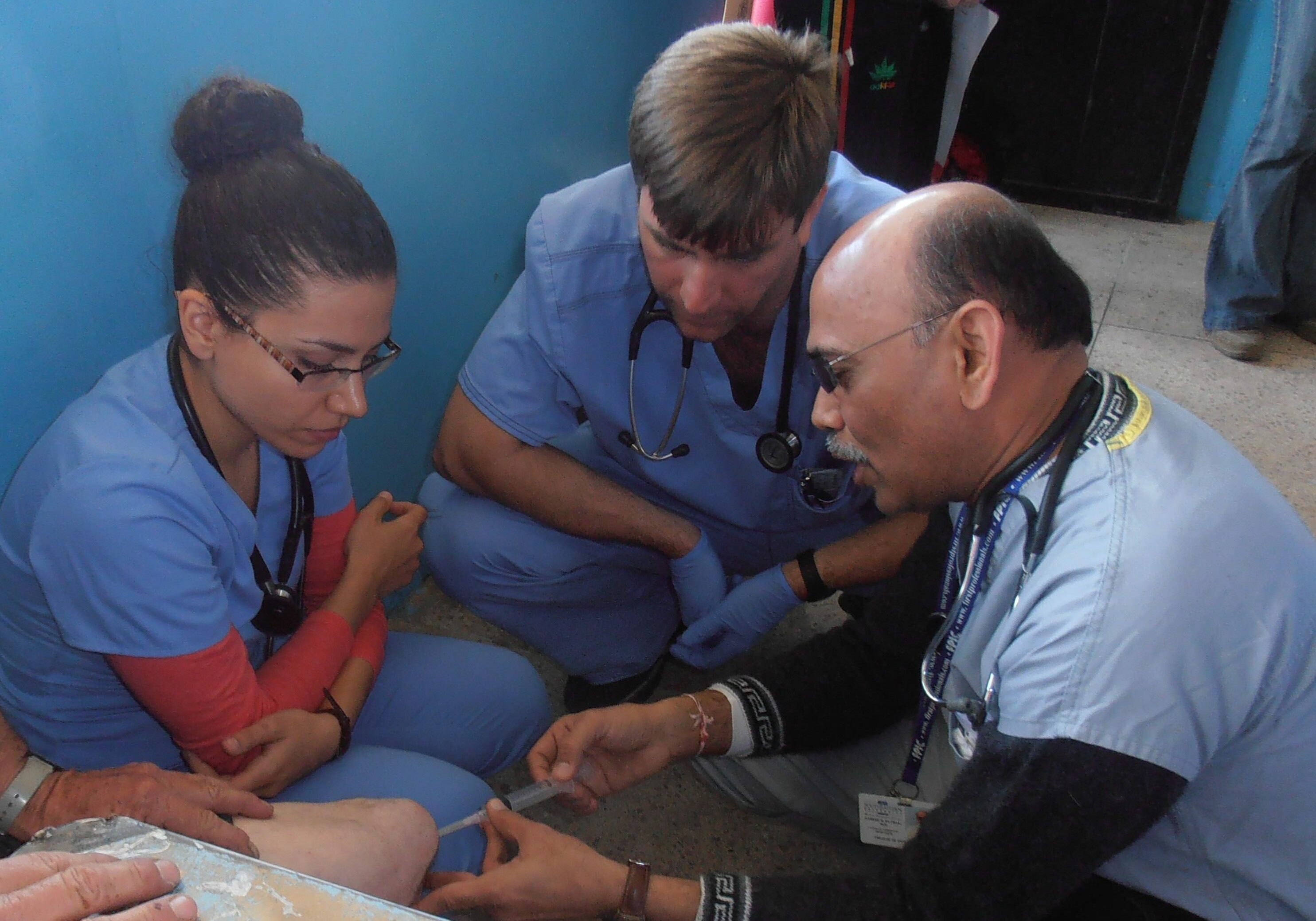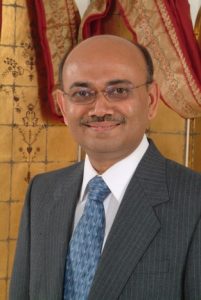Hindu Physician Finds Spiritual Connection in Organ Donation

Death is inevitable – the mental suffering surrounding it is not. Dr. Naresh Pathak has been bringing that message to doctors in Florida since 1989 and last month, he brought it to Virginia as well at the “Life, Death, and Donation” summit. Speaking to other faith leaders in Virginia Beach, Pathak shared his thoughts on organ donation and other end-of-life issues from a Hindu perspective.
His message was the same he’s been spreading to med students for almost three decades—that their own fear of death inhibits their ability to offer care and spiritual healing to patients in their final days.

Dr. Pathak
Pathak was invited to the summit by a chaplain in Richmond who knew of his work in internal medicine, geriatric medicine, hospice, and palliative care. The summit, sponsored by Donate Life Virginia, LifeNet Health, Bridge to Life and the National and Virginia Council of Churches, was designed to increase faith leaders’ understanding of organ donation so they can better speak with their communities about end-of-life decisions.
Pathak, like the others at the summit, shared his view from the vantage point of a physician and a man of Hindu faith.
“In Hinduism, the physical body is considered temporary housing. We are not the body, we are not the intellect, we are not the mind—we are something more. We are an energy temporarily inhabiting a physical shell.”
The Hindu perspective
How does the Hindu faith see organ donation? How does one relate to the end of life as the end of simple physical existence? As the end of life nears, how does one find reconciliation with all of the turmoil of one’s past?
Those are the questions he’s used to answering both as a doctor and as a Hindu.
Organ donation, at least on the surface, is fairly straightforward, he said.
“In Hinduism, the physical body is considered temporary housing. We are not the body, we are not the intellect, we are not the mind—we are something more. We are an energy temporarily inhabiting a physical shell.”
Hindus claim no ownership over the body that houses their essence, he explained. “If that house can be useful to someone else, not only do we not have any right to claim ownership of it, we should make every effort to help others even if it means giving up part of our shell to make their existence easier.”
That is, once your essence is finished with the body it’s in, it makes sense to offer that body (or part of it, anyway) to someone whose life may be made easier or more comfortable by having it.
The explanation is fairly simple. What’s harder is getting doctors to overcome their own—often unseen—fear of mortality so they can help patients make the transition from life to death.
“I sat down with her and his physician and I said ‘Listen; look at where we are. The machine is keeping him alive. He has normal internal organs but his brain is no longer functioning. Keep his memory alive by giving his organs to someone else,’” Pathak related. “When I put it that way, she was able to start listening.”
“An instrument of helping someone else”
One of the nurses in Pathak’s practice experienced the issue firsthand a few months ago when her young husband suffered a sudden seizure and was declared brain dead. He was brought to the hospital, where a machine kept his heart and lungs functioning but he was no longer alive, Pathak said.
The grief-stricken wife was shocked into inaction, and the man’s doctor felt unable to discuss the options with her. So Pathak did.
“I sat down with her and his physician and I said ‘Listen; look at where we are. The machine is keeping him alive. He has normal internal organs but his brain is no longer functioning. Keep his memory alive by giving his organs to someone else,’” Pathak related. “When I put it that way, she was able to start listening.”
The nurse ended up agreeing and made the decision to donate. Pathak said she feels now as though that brought some purpose to her husband’s death.
“Now she says his death had meaning. He became an instrument of helping someone else,” Pathak said, adding that the gift has brought her comfort and helped her to heal.
Doctors without fear
That his doctor was reluctant to discuss the issue with her isn’t uncommon, Pathak said. Most doctors have trouble talking about death, which is why there are so few palliative care doctors in the world—only about 1,200 who are board certified, Pathak said.
“Most doctors feel that death is a failure on the part of medical science. It is not,” he said. “It is a failure on the part of medical science if the patient is unable to make a transition from curative care to palliative care to the end of life without mental suffering.”
That suffering, he explains, comes from trying to keep the body from being snatched away by death, but “it is going to be snatched away from them whether they like it or not,” he said. A doctor can help them find reconciliation and peace and to make virtuous decisions, like organ donation, that will give their death meaning.
“Most doctors feel that death is a failure on the part of medical science. It is not,” he said. “It is a failure on the part of medical science if the patient is unable to make a transition from curative care to palliative care to the end of life without mental suffering.”
A “natural death”
Pathak teaches that principal at four different med schools in Florida and one of them, Nova Southeastern University, he takes students overseas each year to help them learn more traditional and often spiritual ways of healing patients.
“We teach them how to practice bedside medicine without technology,” he said.
In some of the poorest countries in the world, where patients can’t afford food, much less medicine, treating the sick and dying is both an act of charity and a valuable learning experience for doctors who may otherwise never see a “natural death” without hospital wires and machines.
Those experiences, he said, will help them learn to deal with the spiritual and emotional needs of patients once they begin practice in high-tech, sterile environments.
“Doctors are human beings and they are also afraid of their own mortality,” he said. “They can’t talk about death and dying and we have to address that to help patients at the end of life.”
That’s all part of the message he plans to bring to the faith summit to help spiritual leaders and organ donation specialists understand the challenges that face the medical community.
“Doctors are human beings and they are also afraid of their own mortality,” he said. “They can’t talk about death and dying and we have to address that to help patients at the end of life.”
